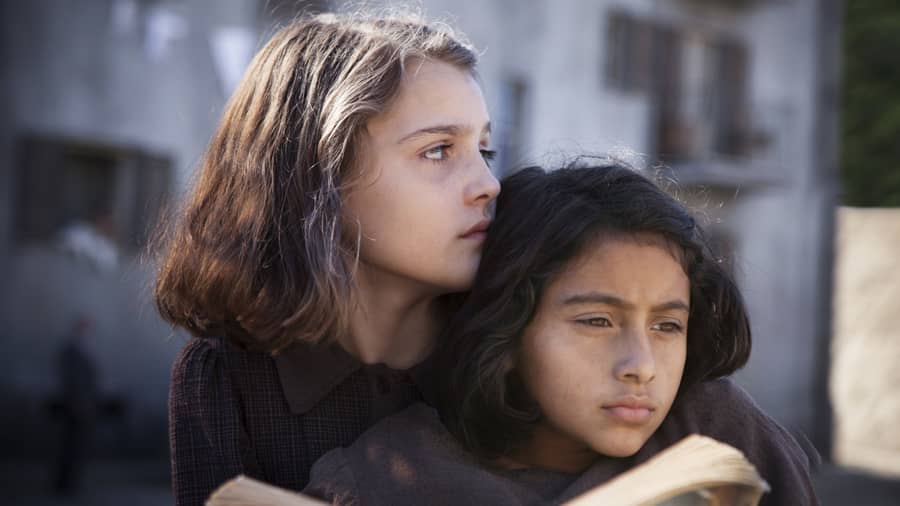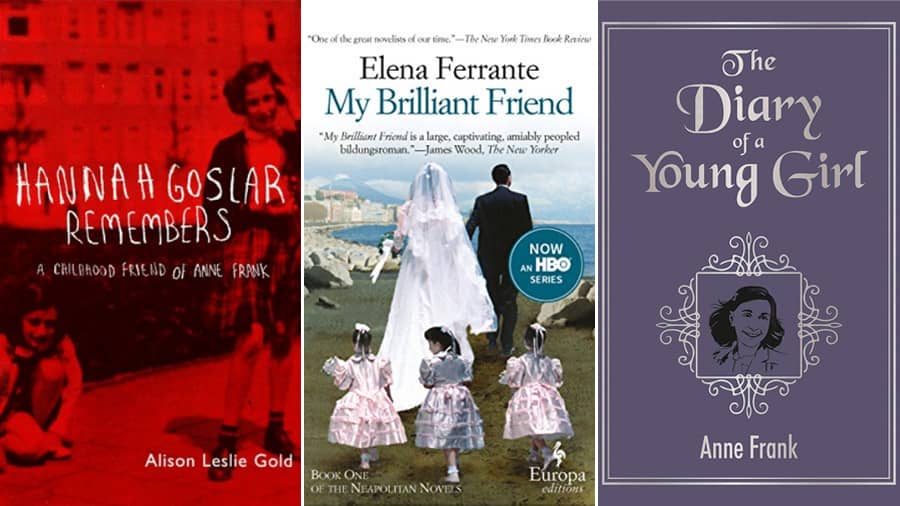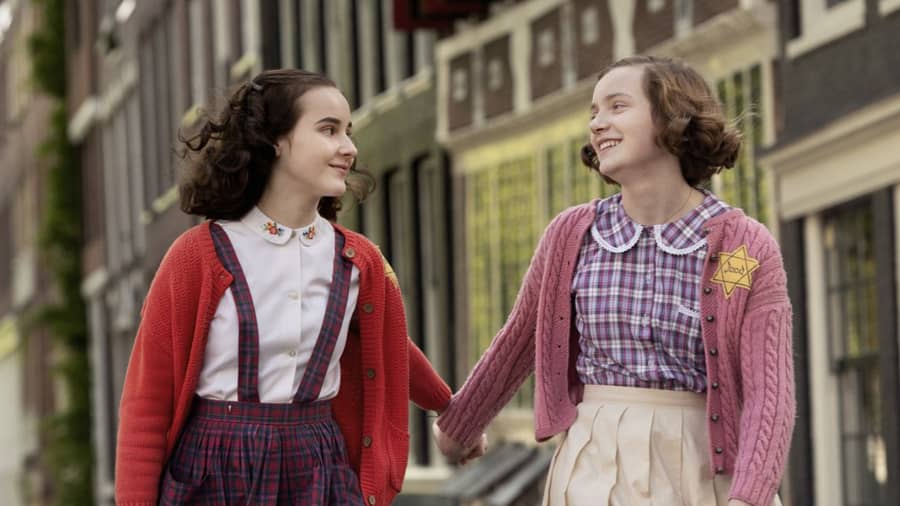Amsterdam 1942. Naples, 1950s. Two friends. A holocaust. A class war.
The Franks have not yet gone into hiding and the seemingly normal adolescent preoccupations — which are also reflected in Anne Frank’s initial diary entries — form the setting of the HBO movie in Dutch, My Best Friend Anne Frank, streaming on Netflix India. Based on a memoir by one of the women Anne Frank grew up with, Hannah Goslar Remembers, this movie explores the give-take-push-pull-follow-lead girlish friendship reminiscent of the “What you do, I do” nature of the Elena-Lila childhood camaraderie in Elena Ferrante’s My Brilliant Friend (which has been turned into a TV series in Italian and can be watched on Voot). From page to screen, the flavour of female friendship comes alive as two young girls come of age in worlds marked with violence.
The Spirited and the Staid
Hanneli Goslar, or Lies as she’s called at school, is a bit on the strange side. She’s usually shy – outspoken at home, but reserved around other people. She blabs whatever you tell her to her mother. But she says what she thinks, and lately I’ve come to appreciate her a great deal. — 13-year-old Anne Frank wrote in her diary on June 15, 1942.
In both My Best Friend Anne Frank and My Brilliant Friend, Hannah Goslar and Elena Greco are happy to play second fiddle to their obviously vivacious, more spirited friends — Anne Frank and Lila Cerullo. A flighty capriciousness marks the personalities of both Lila and Anne, who tease and torment their staid best friends, daring them to embrace danger and court trouble.

While Lila throws Elena’s doll away through a grate and later convinces her to go up to face the feared Don Achille, the “ogre of fairy tales”, Anne Frank (played by Dutch actress Aiko Beemsterboer) persuades Hannah (Josephine Arendsen) to leave her baby sister unattended and then plead with German soldiers to return their confiscated ball. It’s clear that neither Hannah nor Elena would be up to this sort of mischief if they weren’t a little enamoured of their friend and didn’t want to follow in their footsteps, guided by a particularly infectious enthusiasm.
Anne Frank has Lila’s disregard for rules set for her; she visits the annexe, stands by the window and makes phone calls even when her father has warned her about the risks of Jewish people doing any of these. The tension is palpable, because the audience, having read the diary that the little girl will eventually write, knows that this is not likely to end well.
Tension and Violence
A simmering tension marks both the Dutch movie My Best Friend Anne Frank as well as the Italian series My Brilliant Friend. In the first, the shadow of the Nazi concentration camps lurk around the corner. Even while Anne’s father is trying to find ways to move his family to Switzerland and Hannah’s father clings to the hope that his wife’s pregnancy will stop the Germans from moving them out of home, historical records have already shown us that their plans will come to nought. The girlish rivalries and trivial jealousies of adolescence are bittersweet in their innocence, especially in light of the darkness about to envelope their youth.
Meanwhile, in Naples, Elena and all the other young girls of their working-class town, live in fear of their men and the disorder that is likely to erupt at any moment. A woman is never safe from masculine rage and the brutalities that can be inflicted without warning. “I feel no nostalgia for our childhood: it was full of violence,” says the narrator, Elena (played first by Elisa del Genio and later by Margherita Mazzucco). It is Lila who stands fearlessly against the wrath of her father, the neighbourhood boys and later her husband. Ferrante’s gritty world is searingly captured in the grey, grim Italian drama where laughter is fraught with anxiety.
Loyal bonds of friendship
But in the end, both Anne and Lila (played first by Ludovica Nasti and later by Gaia Girace) can rely on nothing but the steadfast loyalty of their childhood friends — the less effervescent but infinitely dependable Hannah and Elena. Hannah is willing to extend her stay in the Bergen-Belsen concentration camp just to be able to throw Anne some food over the wire fence, for the young diarist is starving in infinitely worse conditions. It’s not something she can do without the assistance of other women who agree to put themselves in danger so Hannah can fulfil the promise she made — that she will stay with her friend Anne forever.
Elena, on the other hand, continues to be a step behind Lila through the first season of My Brilliant Friend. If you’ve read the series of course, you’ll know that eventually it is Elena who breaks through the class barriers which keep her kind in squalor and is eventually able to help Lila out of dire straits.
In the end, Anne Frank who wanted to travel the world “to India or China” reaches far corners of the world through the words of her famous diary, and Lila, who is fated to continually struggle against the shackles of the degradation she was born into, can only rely on her intellectual prowess, escaping her circumstances by books she has taught herself to read. Elena, with the influence of Lila in her childhood, goes on to become the famous writer that Lila might have been. And the real Hannah Goslar does in fact become a nurse in Palestine.

Of young Lila’s letters and stories, Elena said, “Lila was able to speak through writing… she expressed herself in sentences that were well constructed, and without error… you weren’t aware of the artifice of the written word… The voice set in the writing overwhelmed me, enthralled me even more than when we talked face to face; it was completely cleansed of the dross of speech, of the confusion of the oral; it had the vivid orderliness that I imagined would belong to conversation if one were so fortunate as to be born from the head of Zeus…” And so was that true of Anne Frank, who started writing her diary when she was 13 and was forced to stop when the atrocities of the holocaust stole her voice.











